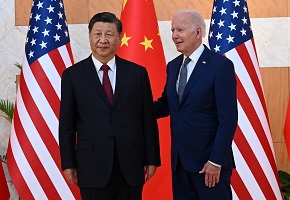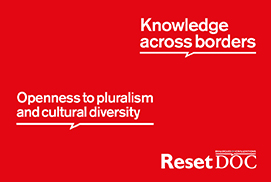Seán Golden
24 April 2024
Jürgen Habermas’ theory of civic discourse imposes binding rules on debate in order to subsequently bind behavior. Perhaps this could be extended to international affairs. Scholar Wang Minmin advocates establishing “a set of negotiable yet binding communicative rules and values, [and] world opinion [that] would both allow civic discourse and act as the binding power of an international norm.” Such an approach would require “that we must first acknowledge the differences in moral orders on both sides, but then also move beyond this to realize the common ground on which both sides stand.”




